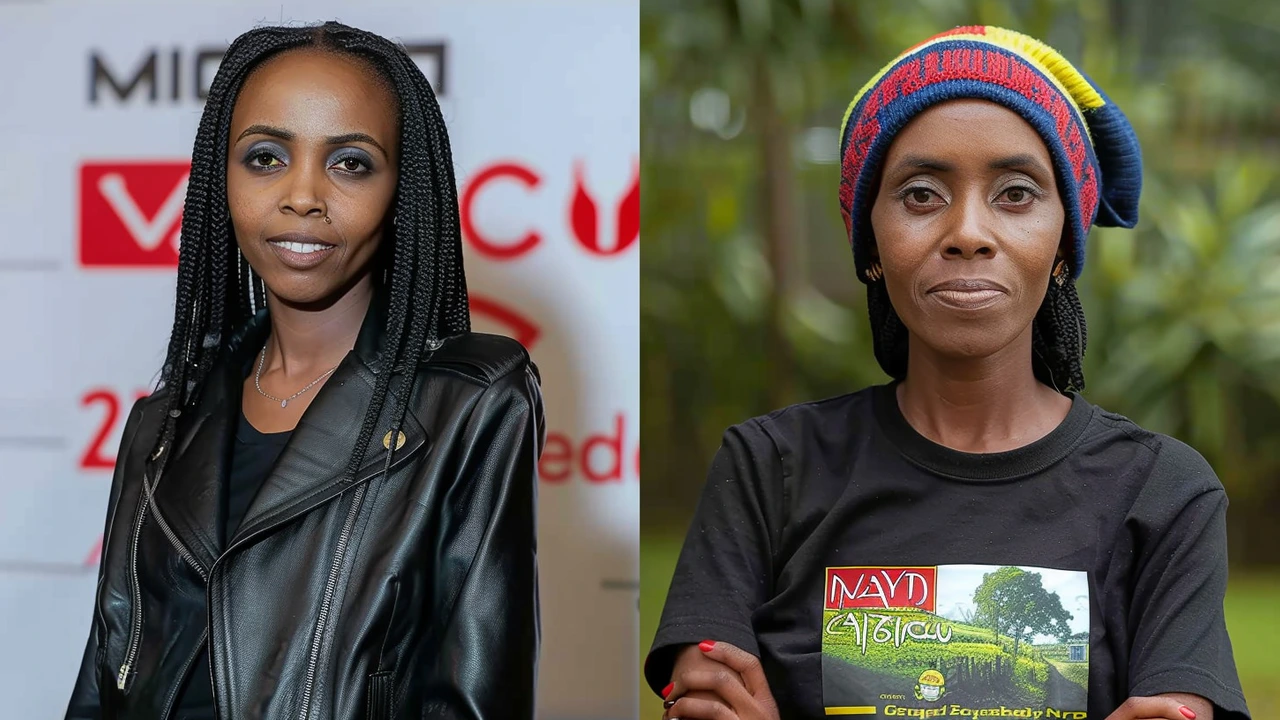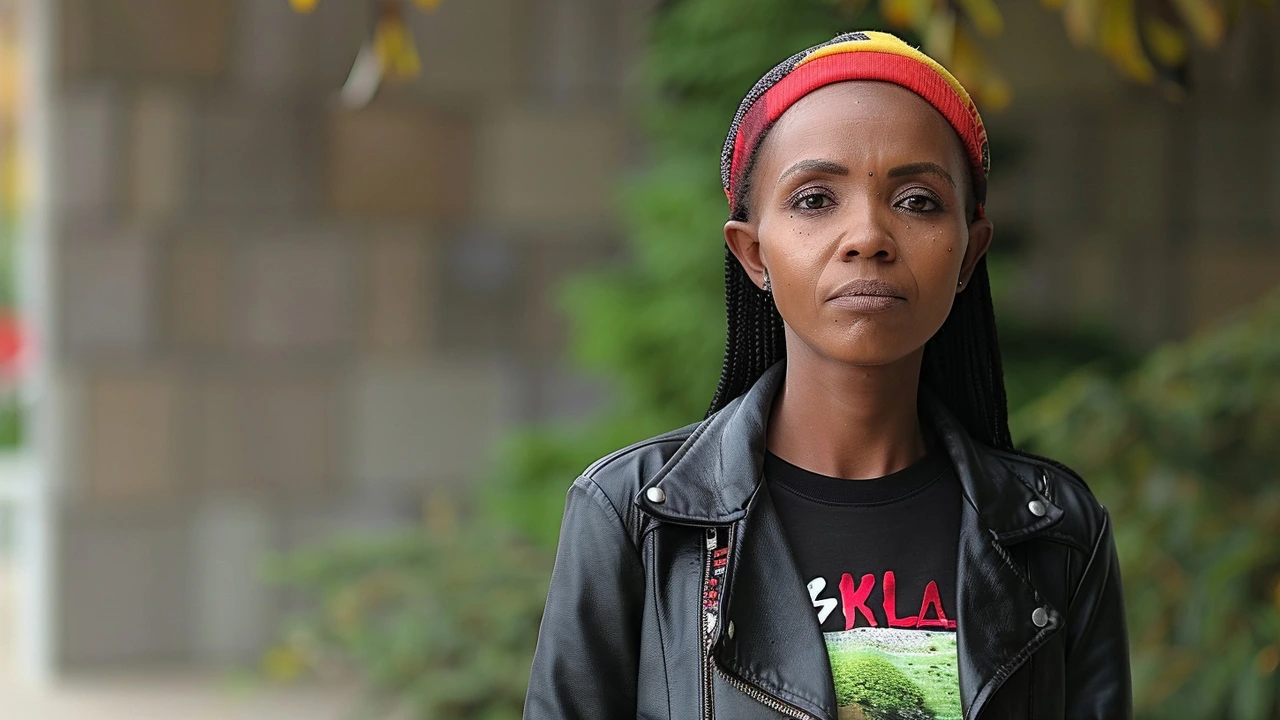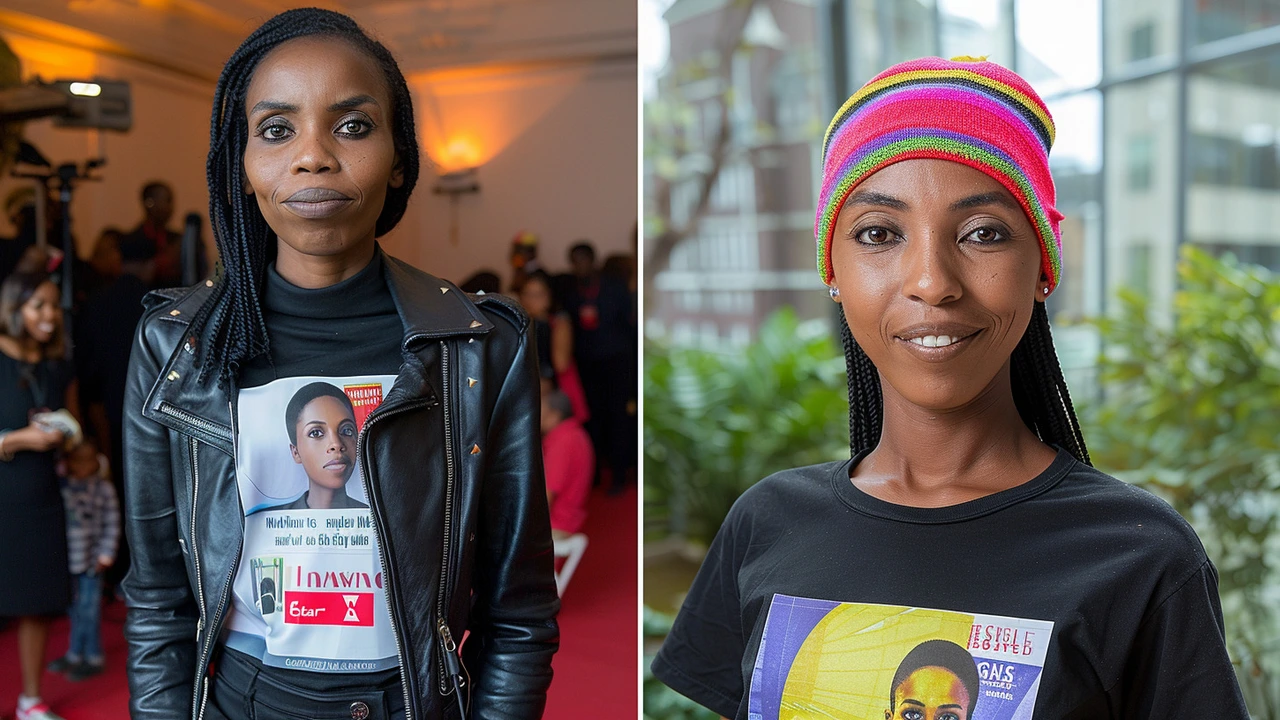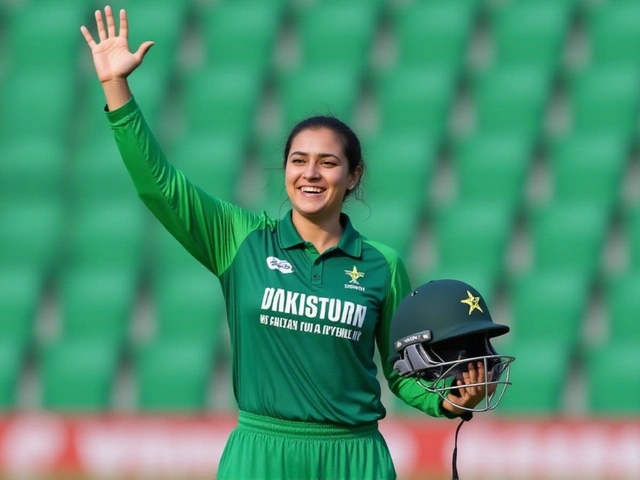Njambi Koikai’s Journey with Endometriosis: A Life Filled with Courage and Advocacy
Njambi Koikai, a renowned Kenyan media personality, passed away after a long and valiant battle with endometriosis. Known for her captivating voice and infectious energy, Njambi’s struggle with this 'silent killer' was as public as it was painful. Her life was marked by numerous surgeries, particularly in the United States, as she sought relief from a condition that affects countless women globally. Endometriosis, where tissue similar to the lining of the womb grows in other parts of the body, rendered her passionate about raising awareness and advocating for deep-rooted changes in Kenya’s healthcare system.

The Severity and Misconceptions of Endometriosis
Endometriosis is an invisible yet debilitating disease. It’s a condition where tissue similar to the endometrium, or the lining of the womb, grows outside the uterus. These growths can cause severe pain, infertility, and a host of other health issues. Despite its severity, it is often misunderstood or misdiagnosed. Many women dismiss period pain as normal, suffering in silence due to lack of awareness or fear of stigma. Njambi was vocal about dispelling these myths. She emphasized that severe period pain is not normal and should not be accepted as just another part of womanhood. Through her public platforms, she sought to shed light on the need for early diagnosis and proper treatment, advocating for a healthcare system in Kenya that could cater adequately to women suffering from this disease.
Impactful Advocacy: Njambi’s Plea to President William Ruto
Njambi Koikai’s activism wasn't constrained to mere words; her efforts translated into stirring calls to action. She urged President William Ruto to recognize endometriosis as a serious health concern warranting significant government investment. Njambi insisted that healthcare strategies should focus on early diagnosis and affordable treatments. Her advocacy highlighted the financial strain endometriosis places on sufferers. Njambi, sharing her personal encounters, underscored the high costs associated with treatments and surgeries, detailing her own experiences as a testament to the financial and emotional toll.
The Stories of Kenyan Women: A Glimpse into Endless Struggles
Njambi’s compelling narrative was supported by countless other testimonies from Kenyan women. For instance, Wanjiku, another endometriosis patient, shared her harrowing journey. With weekly medication expenses ranging between KSh 7,000 and KSh 10,000 and surgeries reaching KSh 1.2 million, Wanjiku’s story echoes the dire need for financial relief and accessible healthcare. These numbers aren’t merely statistics; they reflect real struggles and sacrifices women make in battling this condition. Women like Njambi and Wanjiku have illuminated the harsh reality many face and the urgent necessity for systemic healthcare improvements in Kenya.

Financial Hurdles and Healthcare: The Cost of Treatment
The financial burden of managing endometriosis is substantial, posing significant challenges for many. In Kenya, medications alone can be exorbitantly priced. Surgeries, often critical for managing severe cases, can leave patients in financial ruin. Njambi’s story highlights not only the personal struggles endured but the wider implications for women's health in Kenya. Her call to action stresses the necessity of making treatments more affordable and accessible, ensuring that women do not have to choose between financial stability and health.

The Imperative of Early Diagnosis and Education
One of the cornerstones of Njambi’s advocacy was the push for early diagnosis. Early detection of endometriosis can prevent the progression of the disease, significantly improving quality of life for sufferers. Education plays a critical role here. By educating both the public and healthcare professionals about the symptoms and severity of endometriosis, we can help dismantle the ignorance that often leads to misdiagnosis or delayed treatment. Njambi continually highlighted that period pain, often dismissed as normal, can be a warning sign of deeper health issues.
Sustaining Njambi’s Legacy: The Path Forward
Njambi Koikai’s legacy lives on through her passionate advocacy and the awareness she brought to endometriosis. While her passing is a significant loss, it serves as a stark reminder of the urgent need for improved healthcare. Sustaining her legacy means continuing the fight for accessible and affordable healthcare, ensuring that no woman has to endure the sort of prolonged suffering that marked Njambi’s life. It is a call to action for both the Kenyan government and society at large to recognize and prioritize women's health.
Conclusion
In the wake of Njambi Koikai’s death, the spotlight shines brightly on endometriosis and the healthcare gaps in Kenya. Her story, rich in resilience and advocacy, urges us to address this silent killer with the seriousness it demands. The high costs of treatment and the need for early diagnosis cannot be overlooked. Njambi’s eloquence and dedication have paved the way for a broader discourse on women’s health, urging us all to push for a future where no woman suffers due to lack of awareness or inadequate healthcare infrastructure.







Posts Comments
Elizabeth Alfonso Prieto June 5, 2024 AT 06:29
this is so sad but honestly how is this even still a thing in 2024? women are dying from period pain?? 😭
Brian Gallagher June 6, 2024 AT 03:45
The pathophysiological burden of endometriosis, particularly in low-resource settings, represents a critical failure in reproductive health infrastructure. The absence of standardized diagnostic protocols and the normalization of dysmenorrhea as a benign condition exacerbate morbidity. Njambi’s advocacy underscores the imperative for policy-driven, epidemiologically-informed interventions to mitigate systemic disparities in gynecological care.
Harry Adams June 6, 2024 AT 11:29
Another performative activism story. Let’s be real - if this were a disease that affected wealthy white women in the West, it’d have a billion-dollar research fund by now. But because it’s Kenya? We get sad stories and hashtags. The real issue is corruption in public health funding, not ‘awareness’.
Joshua Gucilatar June 7, 2024 AT 18:01
Endometriosis isn’t just ‘bad cramps’ - it’s an estrogen-driven autoimmune-like condition with neuroinflammatory components that often mimics IBS, pelvic inflammatory disease, and even appendicitis. The average diagnostic delay is 7–10 years globally. In Kenya? More like 12–15. Njambi’s fight wasn’t just brave - it was statistically significant. We need point-of-care ultrasound protocols and endometriosis-specialized OB-GYNs, not just Twitter campaigns.
Ronda Onstad June 8, 2024 AT 09:12
I’ve been following women’s health in East Africa for years, and Njambi was one of the few who didn’t just cry about it - she showed up. She documented her surgeries, she called out clinics that overcharged, she pushed for insurance coverage. The fact that she did this while in pain? That’s not activism. That’s heroism. And honestly? We need more people like her - not just in Kenya, but everywhere. The silence around this disease kills more than the disease itself.
Steven Rodriguez June 10, 2024 AT 09:02
This whole thing is a distraction. Why are we focusing on one woman’s struggle when the real problem is that Kenya can’t even provide clean water to half its population? Priorities, people. Endometriosis is a first-world problem disguised as a third-world tragedy. We should be fixing roads, not funding hysterectomies.
Kelly Ellzey June 10, 2024 AT 14:47
I just want to say… you’re not alone. I know what it’s like to cry in the bathroom during work because your pain is so bad you can’t stand. I know what it’s like to be told ‘it’s just your cycle’. Njambi’s voice gave so many of us permission to scream. And even though she’s gone, her scream is still echoing. Keep talking. Keep pushing. We see you. We hear you. 💜
Ashley Hasselman June 11, 2024 AT 22:30
Oh look, another ‘powerful woman dies and we all cry’. Meanwhile, her ex-husband is still driving his Tesla. Where’s the money? Who profited? This feels like a PR stunt wrapped in grief.
Jess Bryan June 12, 2024 AT 01:33
This is all staged. Endometriosis doesn’t exist. It’s a pharma scam to sell birth control and hysterectomies. The real cause is emotional trauma from Western feminism. Njambi was manipulated. You’re being played.
jesse pinlac June 12, 2024 AT 08:12
The Western media’s fetishization of African suffering continues. Njambi’s story is tragic, yes - but it’s being exploited to justify foreign aid dependency. The solution isn’t more NGOs. It’s local capacity building. Kenya doesn’t need pity. It needs sovereignty over its health system.
Emily Nguyen June 13, 2024 AT 08:13
Let’s not romanticize this. Endometriosis is a biological malfunction, not a political statement. The real villain is the lack of medical training in rural clinics. No amount of viral posts will fix a doctor who doesn’t know what an endometrial biopsy is.
Ruben Figueroa June 13, 2024 AT 15:43
Njambi was a legend 🙏💔 But honestly? Why are we still talking about her? The government didn’t do anything while she was alive. Now she’s dead and suddenly everyone’s a feminist? 🤡 #PerformativeWokeness
Kieran Scott June 14, 2024 AT 19:57
The entire narrative is constructed around emotional manipulation. Njambi’s wealth and access to U.S. healthcare made her an outlier - her experience is not representative of the average Kenyan woman. The fact that this is being framed as a systemic failure ignores the reality that even in the U.S., endometriosis patients are misdiagnosed 70% of the time. This isn’t a Kenya problem. It’s a global medical failure. And the solution isn’t more awareness - it’s retraining every OB-GYN on the planet. But nobody wants to fund that. So we get sad stories instead.
Zara Lawrence June 16, 2024 AT 17:12
I’ve done the research. Endometriosis is linked to glyphosate exposure. The Kenyan government is allowing Monsanto-grade pesticides in food crops. This isn’t about healthcare - it’s about chemical warfare on women. The WHO is complicit. Njambi knew. That’s why she was targeted.
ria ariyani June 16, 2024 AT 22:10
I’m crying so hard right now… like, I had to stop driving because I was sobbing 😭💔 Njambi was my hero. I’ve been waiting 8 years for a diagnosis and I just got my first appointment… I’m gonna name my future daughter after her. She’s still here. She’s still here.
Prakash.s Peter June 18, 2024 AT 03:02
The data is clear: endometriosis prevalence in Sub-Saharan Africa is underreported due to cultural stigma and low healthcare utilization. However, the claim that Kenya lacks infrastructure is misleading. Nairobi’s Aga Khan Hospital has a dedicated endometriosis unit. The issue is access, not availability. Policy must focus on insurance expansion, not symbolic gestures.
maggie barnes June 20, 2024 AT 01:42
I’m a nurse in Nairobi. I’ve seen 3 women this week with stage 4 endometriosis who couldn’t afford the KSh 50,000 for the ultrasound. One of them cried and said ‘I just want to have a baby before I die’. Njambi didn’t die because of the disease. She died because the system gave up on her first.
Write a comment